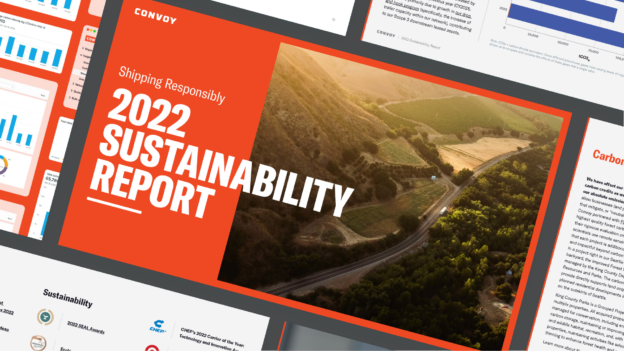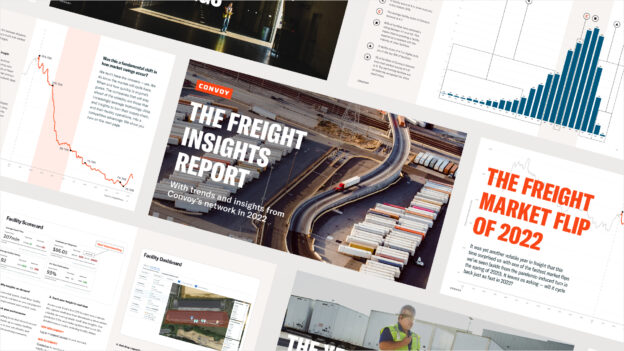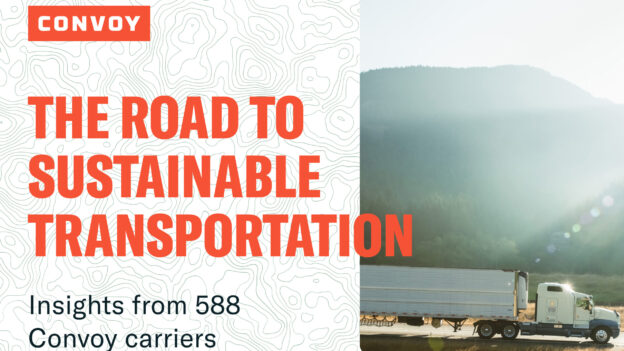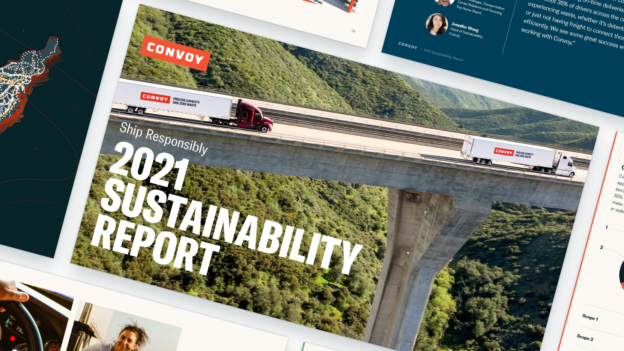Sustainability in Trucking: Snapshot Report 2022 Q1
In March 2022, Convoy surveyed nearly 700 small and mid-sized trucking companies across the United States to collect a snapshot of sustainability in trucking.
Survey highlights include key trends in trucking and new data insights, outlined below. Download the Sustainability in Trucking Snapshot Report to see the full analysis.
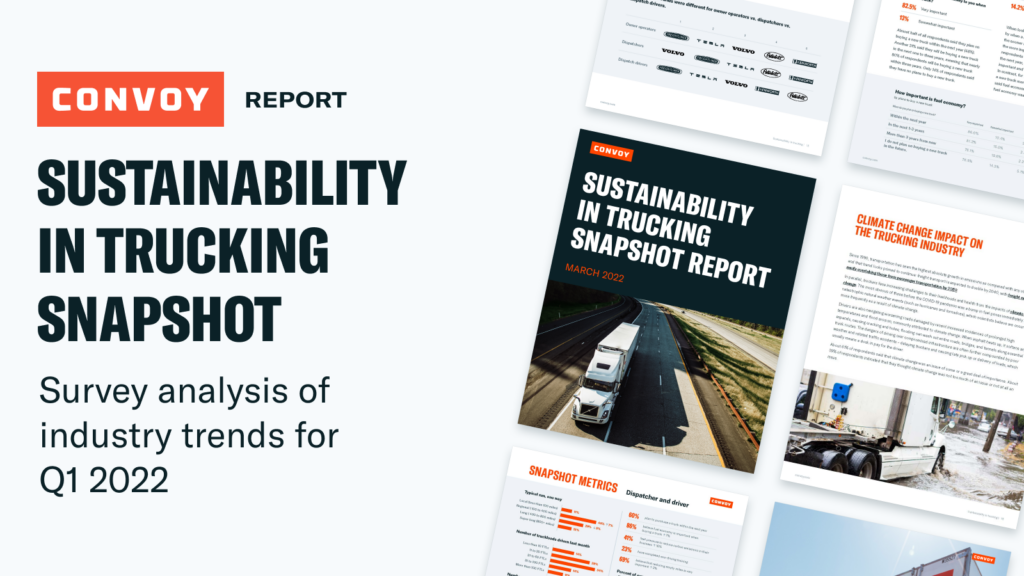
Carrier perspective on empty miles and climate change
Reducing empty miles is still a top priority for carriers
Inefficient truck routing and loading and unloading practices contribute to wasteful fuel consumption. Convoy research shows that 35% of truck miles may be empty miles. In this survey, the regional distance (100–400 miles) represents the biggest share of loads for both the owner operator and the dispatcher and driver groups. It is also this distance that drivers drive empty the most. A carrier that optimizes its freight logistics can save fuel, time and improve productivity, generating fuel cost savings and additional revenue. Trimming just 1% of empty miles from one long-haul truck can save over 100 gallons of fuel.
In this survey, 69% of respondents indicated that empty miles are very important to their business. Furthermore, compared to the response we collected in our previous sustainability in trucking survey of August 2021, a higher percentage of carriers believe reducing empty miles is even more important today. When breaking down the importance of empty miles by role, 63% of dispatchers believe that reducing empty miles is very important, a 5% increase from the previous survey. Similarly, 69% of dispatch drivers believe that reducing empty miles is very important, a 3% increase from the last survey.
Carriers feel increasing pressure to reduce carbon emissions
In our 2021 survey, 35% of respondents reported feeling pressure to reduce carbon emissions. In our 2022 survey, this number has increased to 38%. While previously the top cited reason for reducing carbon emissions was awareness of the environmental impact of carbon emissions, more recently respondents pointed to Government Regulation as the major reason for feeling pressure to reduce carbon emissions.
Views of the impact of climate change on trucking differ starkly by age group
Climate change is impacting trucking. About 61% of respondents said that climate change was an issue of some or a great deal of importance. The age of the respondent made a difference on their view of climate change. The youngest age cohort (aged 21 to 24) showed more concern about climate change, with 43% of respondents saying it was a great deal and 43% of respondents saying it was somewhat of an issue. Only 14% of individuals aged 21 to 24 said that climate change was not at all an issue. By contrast, the oldest cohort (aged 56 and over) indicated that almost one in four thought climate change was not an issue at all and another 15% said they thought climate change was not too much of an issue.
Carrier purchase considerations
Carriers heavily factor fuel economy in their purchase decisions
When considering their next truck purchase, 83% of respondents rated fuel economy as very important.
When examining how important fuel economy is in relation to the respondent’s planned timing for buying a new truck, the survey data suggests that fuel economy becomes more important the sooner the respondent plans to buy a truck. For respondents who planned on buying a truck within the next year, 86% said fuel economy was very important and 10% said it was somewhat important. In contrast, for respondents who planned on buying a new truck more than 3 years from now, only 77% said fuel economy was very important and 14% said fuel economy was somewhat important.
Additionally, respondents believe that higher Class 8 fuel economy standards now will significantly increase operating costs.
The carrier interest, or lack thereof, in electric trucks
When looking at the desire to drive an electric truck by how many years the respondent had been in the business, there’s a clear trend that the longer an individual has been in the business, the less likely they are to want to drive an electric/hydrogen truck.
In looking at what electric/hydrogen truck respondents are most excited to drive, the Freightliner eCascadia comes out on top at 23%. The eCascadia is followed by Tesla at 18%, and Volvo at 18%. Rounding out the other brands were Kenworth at 12%, Peterbilt at 11%, Nikola at 3%, and Daimler Trucks at 1%.
Notable respondent demographics
Gen X dominates the trucking industry
An aging fleet of drivers is one of the main reasons for driver shortages. The Bureau of Labor Statistics estimates that the average age of a commercial truck driver in the US is 55 years old. In our survey, 45% of survey respondents were over 45 years old, with most respondents between 45 to 55 years old.
Gender differences vary based on carrier roles
Compared to the overall survey breakdown by gender, with 17% of respondents female and 82% male, there are significant gender differences when examining role type. The percentage of female respondents increases to 60% for the dispatcher role, decreases to 7% for the role of dispatcher & driver, and is lowest at 6% for owner operators.
Download the Sustainability in Trucking Snapshot Report to see the full data for sustainability trends in trucking.
SUSTAINABILITY AT CONVOY
We are focused on reducing the billions of waste in trucking and improving the lives of truck drivers. Learn more about Convoy’s commitment to supply chain sustainability.
